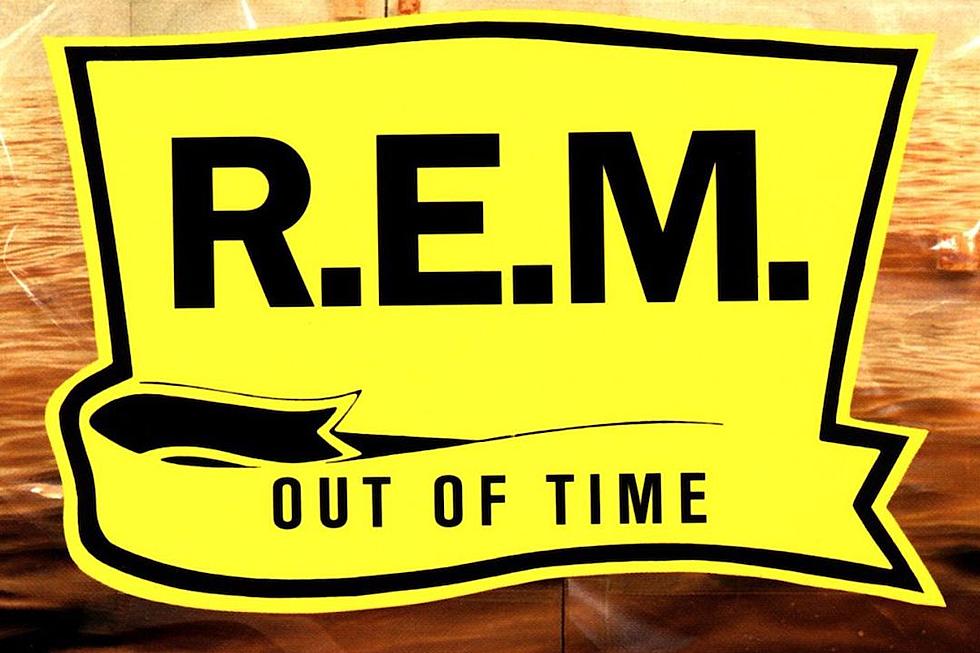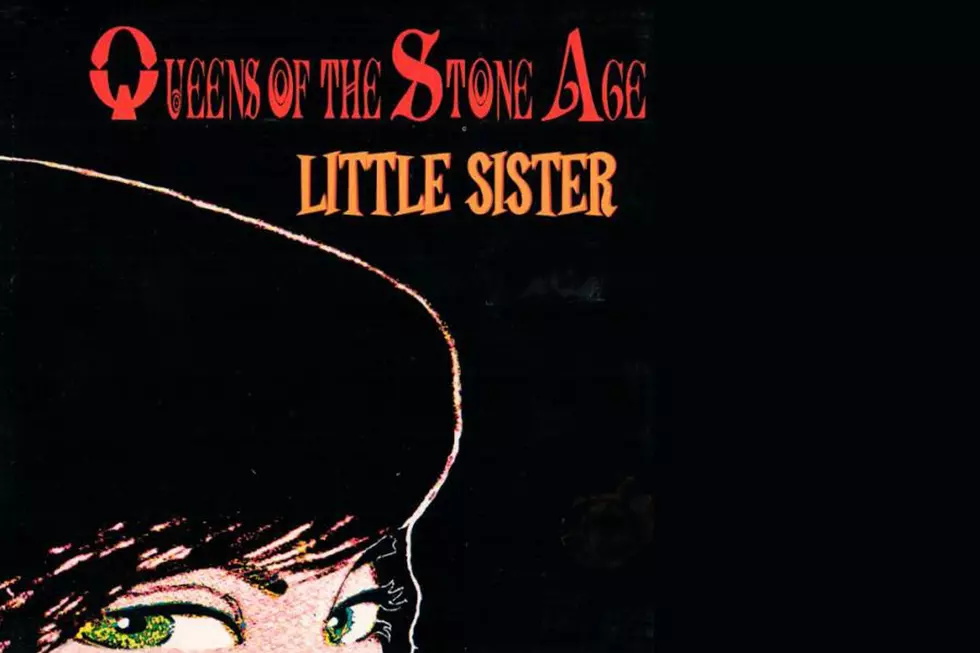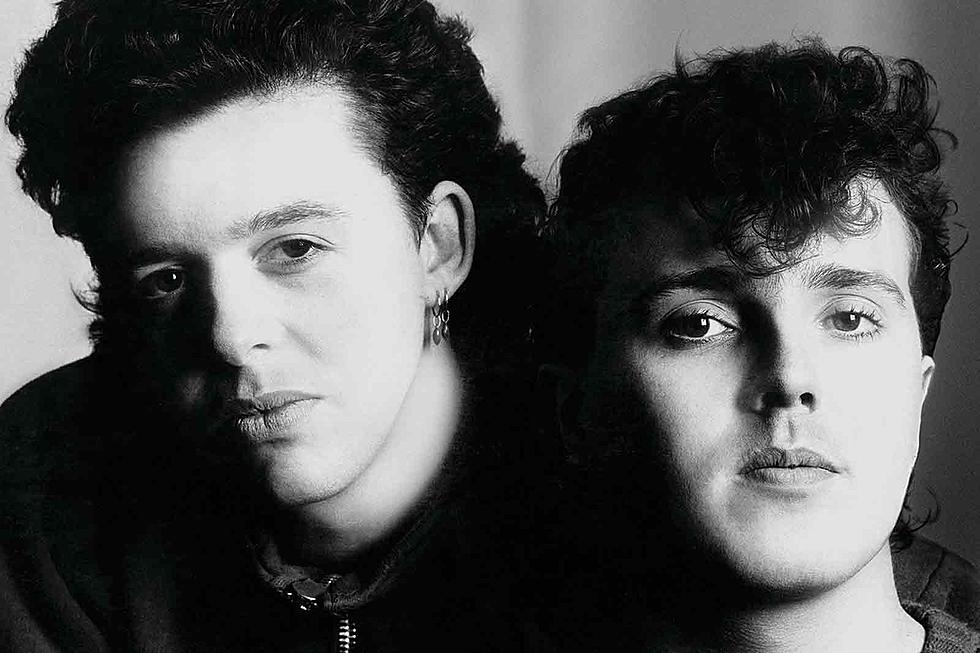30 Years Ago: Mr. Mister Take on Weightier Issues With ‘Go On…,’ Then Disappear
After the breakout success of 1985's Welcome to the Real World, Mr. Mister made the mistake of getting serious. They never recovered.
Of course, the initial impulse – certainly from their label's standpoint – was to continue along in the same manner with Mr. Mister's follow up Go On..., which arrived on Sept. 8, 1987. "After Real World, that’s when the pressure hit," singer and bassist Richard Page told Popdose in 2010, "and they were like, 'Okay, well, where's the 'Broken Wings' and where’s the 'Kyrie'; let’s keep this going.'"
That kind of hit never materialized in a set that focused on more topical things. Instead, Go On... emerged as a "kind of document of what is happening to us and the world," Page told the Chicago Tribune in 1987. "Something Real (Inside Me/Inside You)" reached No. 29, but none of the successive three singles even charted – including "Stand and Deliver," which was featured in the Edward James Olmos movie of the same name.
A record-buying public looking for more of the same wasn't ready for songs like "Dust," which focused on the plight of Amerasian children who were left behind when war ends. Elsewhere, Page and co-composers Steve George, John Lang and Steve Farris explore issues like mass-media over-saturation ("The Tube") and the search for larger truths in our existence ("Man of a Thousand Dances").
"Go On... was definitely a change of direction for us," George admitted in a 1995 talk with Keyboard magazine. "As an artist, it's tough to stick to a formula."
"The Border," meanwhile, was inspired by one of Page's favorite writers, the exiled Czech-born French novelist Milan Kundera, best known for The Unbearable Lightness of Being. "Stand and Deliver" – a song originally intended for Tina Turner – actually played a more danceable, upbeat role on the album, but was linked to a dramatic film, as well.
Page said this evolution was as natural as it was necessary. "I only know about my own spiritual struggle," he told the Tribune. "If in expressing that struggle I can help other people, then fine. That's my goal, to get other people to say, 'I understand that, I can relate.'"
Listen to Mr. Mister Perform 'Dust'
All of it was presented with a similarly approachable pop-rock sheen courtesy of co-producer Kevin Killen, who'd earlier served as an engineer with Peter Gabriel. "Kevin doesn't like to mess around with a lot of reverb and things like that," Page told the Chicago Tribune. "He likes everything in your face, so the listener doesn't have to search to find it."
Page, keyboardist Steve George, guitarist Steve Farris and drummer Pat Mastelotto – the latter of whom had overcome back problems to complete Go On... – worked hard to produce an album about which they expressed no small amount of satisfaction. "It was our desire not to make the same album twice," Page told the Sun-Sentinel in 1987. "Why perpetuate one sound over and over again? We wanted a change – something completely different – and we're very happy with it."
As with "Stand and Deliver," "Something Real" appeared as part of two soundtracks (the film Youngblood, and then TV's Miami Vice). "Healing Waters" even earned a Grammy for Best Gospel Performance. Unfortunately, Go On... not only failed to match the chart-topping success of Welcome to the Real World, it didn't even crack the Top 40.
The album entered the charts at No. 62, and peaked the next week at No. 55, even as their label RCA was sold to the German media group BMG. Just as quickly as the tide had risen for Mr. Mister – a group of accomplished session musicians who'd coalesced just a few years before around boyhood friends Page and Steve – it seemed to have irretrievably turned back.
"Stand and Deliver" would be the last single Mr. Mister ever released, as Welcome to the Real World became both a blessing and a curse.
"It's hard to top that," Page told Popdose. "You know, there's a stat somewhere, and I don't remember exactly, but I remember somebody showing it to me that strangely our band, Mr. Mister, was one of a handful of bands that had two No. 1 hits off of a No. 1 album. I think the other ones were, of course, the Beatles – and there's just a couple more. It's strange that a band with our short duration of success was in that league, as far as having that kind of success with one album."
By 1988, Farris was gone; by 1990, Mr. Mister was, too. They attempted to gather again without Farris, using session guitarists like Trevor Rabin to complete a fourth album titled Pull, but their label shelved it. The project finally saw belated release in 2010, some 20 years after Mr. Mister called it quits.
How 50 of Alternative Rock's Biggest Bands Got Their Names
More From Diffuser.fm









